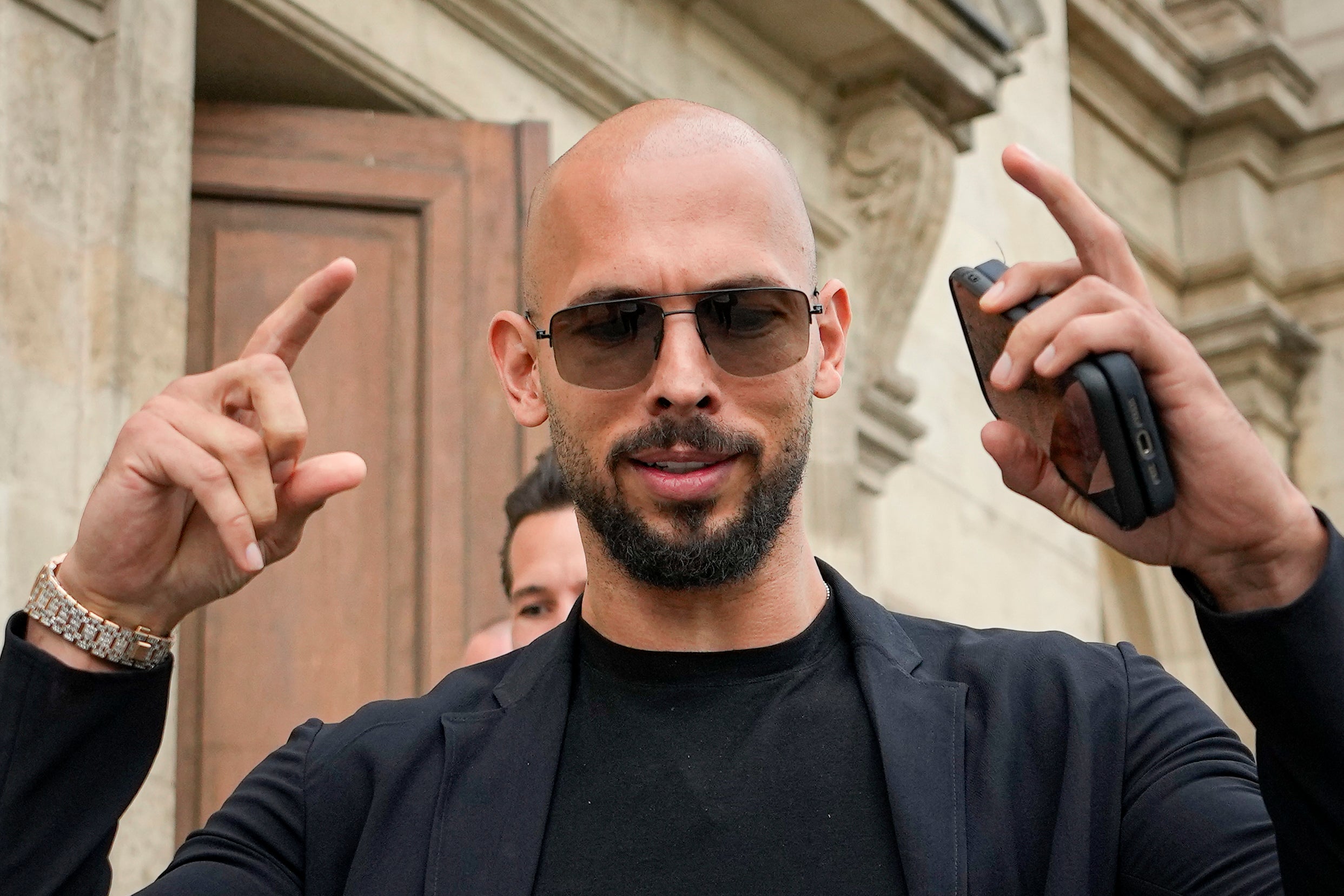Why has it taken so long to acknowledge Andrew Tate’s ‘teachings’ are a form of radicalisation?
A shocking new report into violence against women and girls made the unusual step of calling out the influence of one individual – self-proclaimed misogynist Andrew Tate – as a key driver behind the radicalisation of boys and young men, writes Katie Edwards. Are any of us surprised?


The National Policing Statement 2024 on violence against women and girls, a collaborative report from the College of Policing and the National Police Chiefs’ Council, makes for sobering reading. For many women, the contents will be shocking – but certainly not surprising.
Take a look at some of the statistics and you’ll see what I mean. The report shows 3,000 crimes of violence against women and girls are recorded every day, and that more than one million related crimes were recorded in 2022/23 – accounting for 20 per cent of all police-recorded crime.
It found there had been a 37 per cent rise in the number of violent crimes against women and girls between 2018 and 2023, and the report predicts that at least one in every 12 women will be a victim every year – although the exact number is expected to be much higher.
Deputy Chief Constable Maggie Blyth, the national lead for policing violence against women and girls, made the unusual step of calling out the influence of one individual – self-proclaimed misogynist Andrew Tate – as a key driver behind the radicalisation of boys and young men.
“We know that some of this is also linked to radicalisation of young people online, we know the influencers, Andrew Tate, the element of influencing particularly boys, is quite terrifying and that’s something that both the leads for counterterrorism in the country and ourselves from a violence against women and girls perspective are discussing,” she said.
Clearly, Blyth isn’t laying the whole blame for what the report describes as “a deepening crisis” at the designer loafer-clad feet of the multimillionaire influencer. She is saying, however, that Tate’s reach and clout among boys and men is an important factor in understanding how to address the “national emergency” declared by home secretary Yvette Cooper and minister for safeguarding Jess Phillips, who has warned plans to tackle misogyny in schools could take up to 20 years to have an impact on society.
In my opinion, Blyth is right to name Tate specifically. His influence is widespread and pervasive. Just look at “Hustler University”.
But there is also concern. Some worry that naming Tate’s influence as a significant contributory factor to the growing threat of violence faced by women and girls could prove counterproductive to the aims of the report.
Some worry it runs the risk of reifying his status as a powerful edgelord, feared and persecuted by the authorities – a narrative he’s been eager to promote to his followers. Is there a risk that naming Tate, who’s currently awaiting trial with his brother Tristan in Romania on charges of human trafficking and rape, might deflect from the broader, more complex issues that have helped drive the crisis?
Of course, the reasons for the deepening crisis are clearly complex, but there’s no doubt that Tate’s brand of misogyny has become a popular cultural phenomenon. And it is my sincere belief that if the police fail to call it out for what it is, they’re failing women and girls all over again.
Tate has glamorised the hatred of women and sold it to boys and young men as a means of achieving wealth and social status. After all, Tate has shown time and again that misogyny pays. Tate has made millions – at least £21m, according to a civil case brought in July 2024 by Devon and Cornwall Police in which the siblings are accused of failing to pay tax on the revenue from their online businesses.
For those who think that Tate is an “important voice for men” and has “interesting views”, here’s an example.
One of his TikTok posts advises men on the appropriate response to a woman who accuses a man of cheating: “It’s bang out the machete, boom in her face, you grip her up by the neck, ‘WHAT’S UP BITCH’ ... you go f*** her. That’s how it goes, you go slap, slap, grab, choke, ‘shut up bitch’, sex.”
I’m not surprised, then, that DCC Blyth has singled out Tate in her discussion of the NPCC report. I am surprised, however, that it’s taken so long to recognise Tate’s “teachings” as radicalisation.
Women, he seems to think, are valued only according to youth, sexual appeal and experience. In July 2023, for example, Tate posted the following to Twitter: “Women are born with innate power… But every time someone f**** them… they give some away…. He takes it. And that’s why the most powerful men have slept with endless women, and why the least magical women have slept with endless men.”
There’s no doubt that this guy’s a threat to women – and to the thousands of boys and young men who take his vile schtick seriously. Surely, anyone reading Tate’s posts can see that the attitudes and behaviour he promotes are a form of terrorism against women?
Tate’s status is a symptom of a society that’s still not taking violence against women and girls seriously. Understanding why he’s managed to capture the attention and imagination of so many across the world has to be key to addressing violence against women and girls.
Join our commenting forum
Join thought-provoking conversations, follow other Independent readers and see their replies
Comments
Bookmark popover
Removed from bookmarks